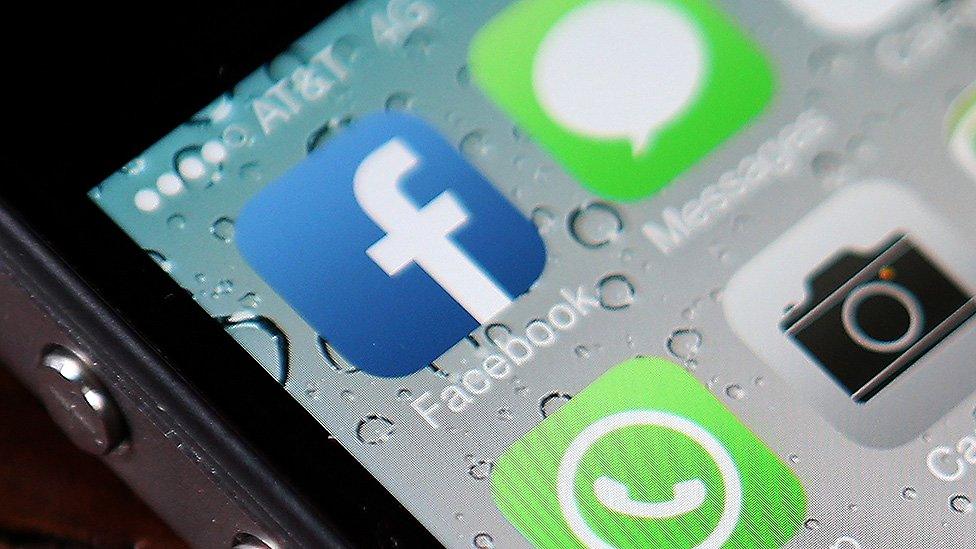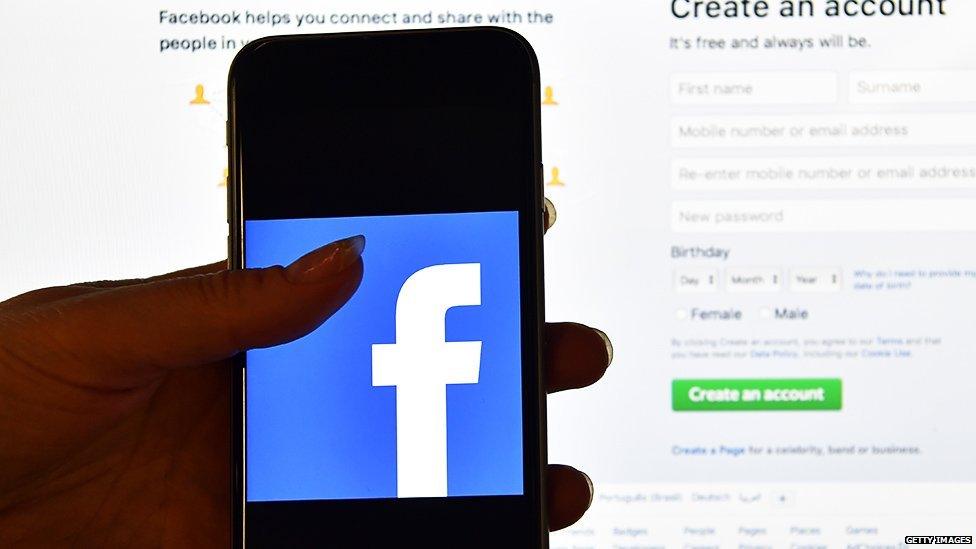How Facebook is starting to tackle fake news in your news feed
- Published

Facebook has revealed how it will start tackling fake news stories and how users' newsfeeds will change after a new update.
In November it was reported the company had an unofficial task force working on the problem.
A Buzzfeed report, external showed that there was more engagement on fake news stories around the US election than real news.
Now, Facebook has promised to reprioritise fake news on its pages.
It says one of its news feed values is "authentic communication" and that it's acting to prevent posts that are "misleading, sensational or spammy".
Pages that have been posting fake news have been studied by Facebook's experts and are now expected to be seen less frequently in news feeds.
"We categorised pages to identify whether or not they were posting spam or trying to game feed by doing things like asking for likes, comments or shares," says a statement, external from Facebook.
"We then used posts from these pages to train a model that continuously identifies whether posts from other pages are likely to be authentic.
"For example, if page posts are often being hidden by people reading them, that's a signal that it might not be authentic."

Facebook's latest update also aims to prioritise timely updates, such as sporting news, in users' feeds
However, fake news will still appear in your Facebook news feed, but it will now be shown below photos of your friend's latest baby photo and updates on who's been cast in Avengers: Infinity War.
"If a post is likely to be authentic based on the new signals we look at, it might show up higher in your feed," it says.
Your relationship to the person who shared the article will also be taken into consideration along with the number of likes, shares and comments.
The update was written by Akos Lada and James Li, two of Facebook's research scientists, and Shilin Ding, Facebook's engineering manager.
US President Donald Trump has vowed to crack down on fake news and claims recent reports of controversial Russian footage of him are an example of fake news.
He also accused CNN of being a fake news organisation at a press conference., external
The man who set up fake news site Southend News Network told Newsbeat that two million people a month read his spoof articles.
"People read a headline and then don't even bother to check the content before they share it," he said in November.
"Half the people fall for the stories, the other half are genuinely entertained by what they read."
His stories can be seen as harmless but others have had more serious implications.
In December, a man fired a gun into a Washington pizza restaurant after reading fake news stories about Hillary Clinton's involvement in a child sex ring.
Find us on Instagram at BBCNewsbeat, external and follow us on Snapchat, search for bbc_newsbeat, external